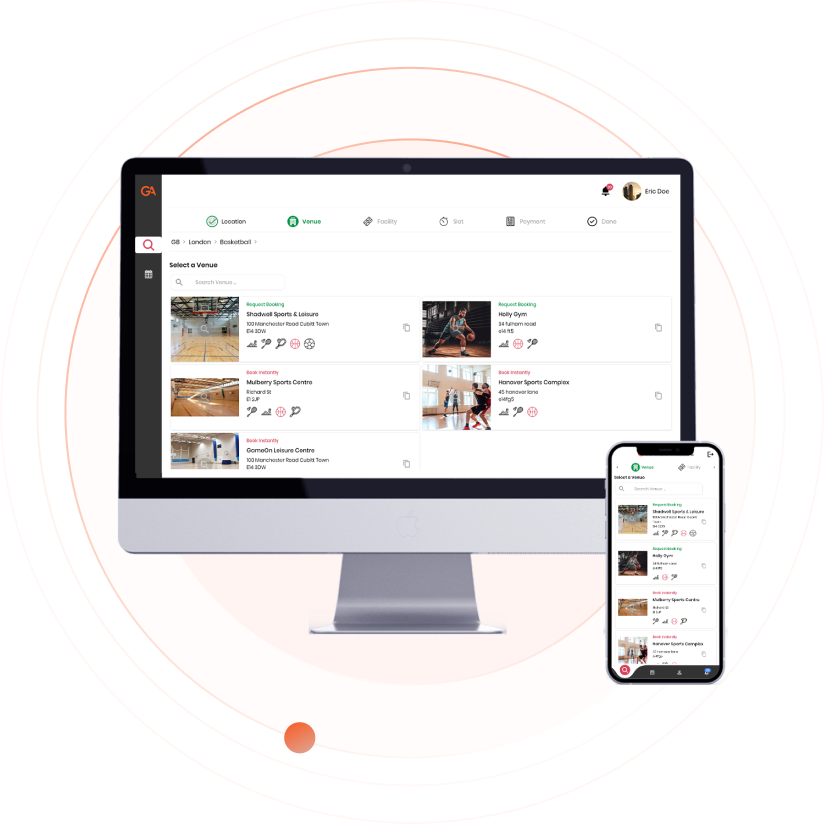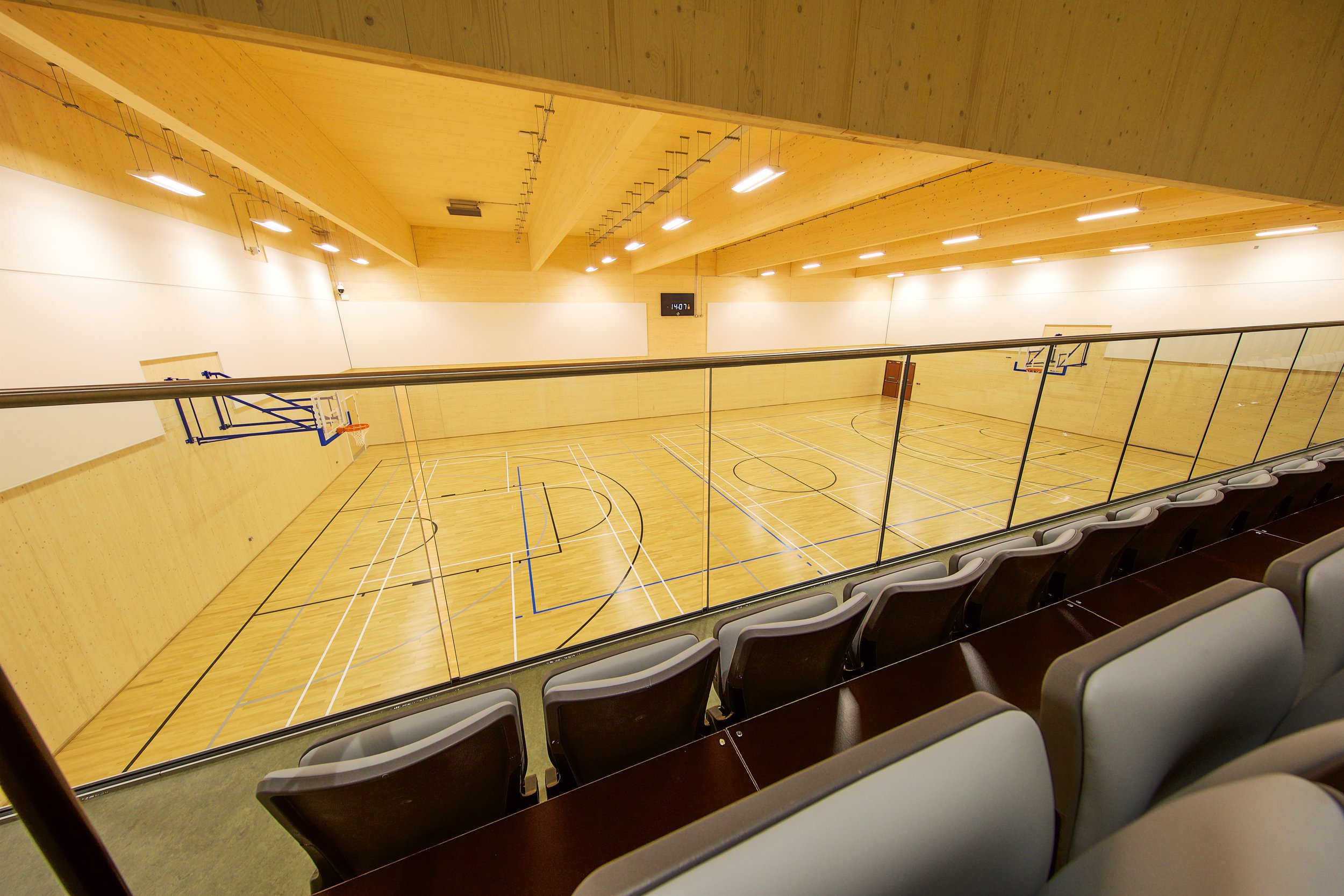The sports facility management industry is experiencing a seismic shift. Traditional methods of managing bookings, memberships, and operations are rapidly being replaced by sophisticated digital platforms that promise greater efficiency, enhanced user experiences, and improved profitability.
As we move deeper into 2025, facility owners who embrace digital transformation are not just surviving – they're thriving. Those who resist change risk being left behind in an increasingly competitive marketplace.
The Current State of Facility Management
Many sports facilities still rely on outdated systems: phone bookings, paper schedules, manual payment processing, and spreadsheet-based management. While these methods have served the industry for decades, they're increasingly inadequate for modern consumer expectations.
Today's users expect seamless digital experiences. They want to book facilities instantly, pay securely online, receive automated confirmations, and manage their bookings through intuitive apps. Facilities that can't meet these expectations are losing customers to more tech-savvy competitors.
The Digital Divide
Research shows that facilities with comprehensive digital booking systems see 40% higher utilization rates compared to those relying on traditional methods. The gap is widening as consumer behavior shifts increasingly toward digital-first interactions.
Key Digital Transformation Trends
1. Integrated Booking Platforms
Modern facility management platforms offer end-to-end solutions that handle everything from initial booking to payment processing and customer communication. These systems provide real-time availability, automated scheduling, and seamless user experiences across web and mobile platforms.
Trend Spotlight: AI-Powered Scheduling
Advanced platforms now use artificial intelligence to optimize scheduling, predict peak usage times, and automatically adjust pricing based on demand. This dynamic approach maximizes revenue while ensuring optimal facility utilization.
2. Mobile-First Experiences
With over 85% of facility bookings now initiated on mobile devices, having a mobile-optimized platform isn't optional – it's essential. The best platforms offer native mobile apps that provide intuitive booking experiences, push notifications, and offline functionality.
3. Data-Driven Decision Making
Digital platforms generate valuable insights about usage patterns, customer preferences, and operational efficiency. Facility managers can now make informed decisions about pricing, scheduling, marketing, and facility improvements based on real data rather than intuition.
4. Automated Operations
From automated payment processing to smart access control systems, digital transformation is reducing the manual workload for facility staff. This automation not only cuts costs but also reduces human error and improves the overall customer experience.
The Benefits of Going Digital
Enhanced Customer Experience
Digital platforms provide customers with 24/7 booking access, instant confirmations, easy rescheduling, and transparent pricing. This convenience translates directly into higher customer satisfaction and retention rates.
Operational Efficiency
Automated systems handle routine tasks like booking confirmations, payment processing, and schedule management, freeing staff to focus on customer service and facility maintenance. This efficiency often results in significant cost savings.
Revenue Optimization
Dynamic pricing, better utilization tracking, and reduced no-shows all contribute to increased revenue. Many facilities report 20-30% revenue increases within the first year of implementing comprehensive digital systems.
Competitive Advantage
Facilities with superior digital experiences attract more customers and can often command premium pricing. In competitive markets, digital capabilities often become the deciding factor for customers choosing between venues.
Looking Ahead: Emerging Technologies
The next wave of innovation includes IoT sensors for real-time facility monitoring, VR/AR for virtual facility tours, blockchain for secure transactions, and advanced AI for predictive maintenance and personalized customer experiences.
Implementation Strategies
Start with Core Functionality
Begin with essential features like online booking, payment processing, and basic customer management. Once these foundations are solid, gradually add advanced features like analytics, automated marketing, and integration with other systems.
Choose the Right Platform
Look for platforms that offer scalability, robust customer support, and integration capabilities. The best solutions grow with your business and can adapt to changing needs without requiring complete system overhauls.
Train Your Team
Digital transformation isn't just about technology – it's about people. Ensure your staff is properly trained on new systems and understands how digital tools can enhance rather than replace their roles.
Focus on Customer Adoption
Implement change management strategies to help existing customers transition to digital booking methods. Offer incentives, provide clear instructions, and maintain alternative booking methods during the transition period.
Overcoming Common Challenges
Initial Investment Concerns
While digital transformation requires upfront investment, the ROI typically becomes apparent within 6-12 months through increased bookings, reduced administrative costs, and improved operational efficiency.
Technical Complexity
Modern platforms are designed to be user-friendly, with many offering comprehensive onboarding and ongoing support. Choose providers that prioritize ease of use and provide excellent customer service.
Customer Resistance
Some customers may initially resist digital booking methods. Address this by maintaining multiple booking channels during transition periods and providing clear benefits communication about the new system's advantages.
Ready to Transform Your Facility?
Discover how GameOn Active's comprehensive facility management platform can revolutionize your operations and boost your revenue.
Explore Our Platform Schedule a DemoThe Bottom Line
Digital transformation in sports facility management isn't just a trend – it's the new standard. Facilities that embrace these changes will be better positioned to serve their customers, optimize their operations, and grow their businesses in an increasingly digital world.
The question isn't whether to digitize, but how quickly you can implement the right solutions to stay competitive. The future belongs to facilities that can seamlessly blend physical spaces with digital experiences, creating value for both operators and users.
The transformation starts today. Are you ready to lead the change?



